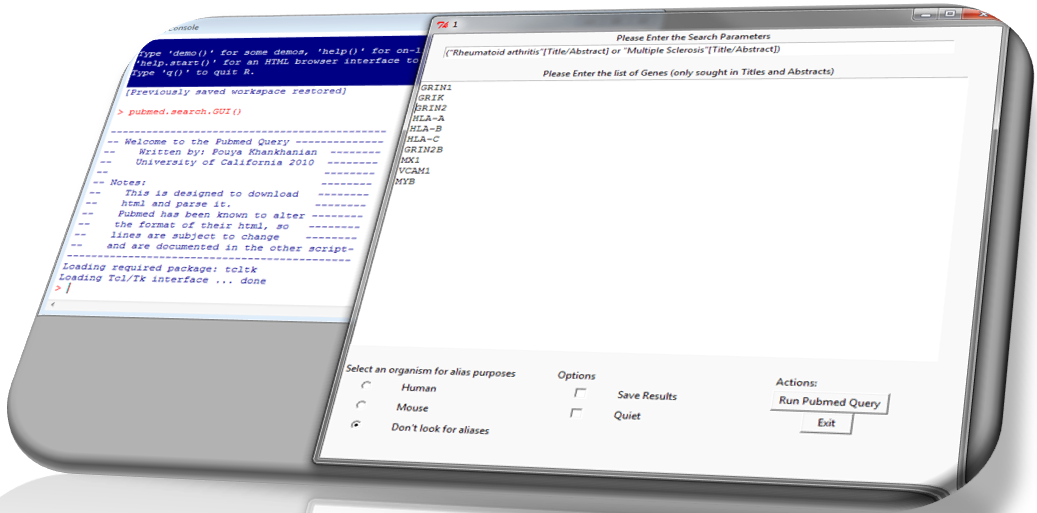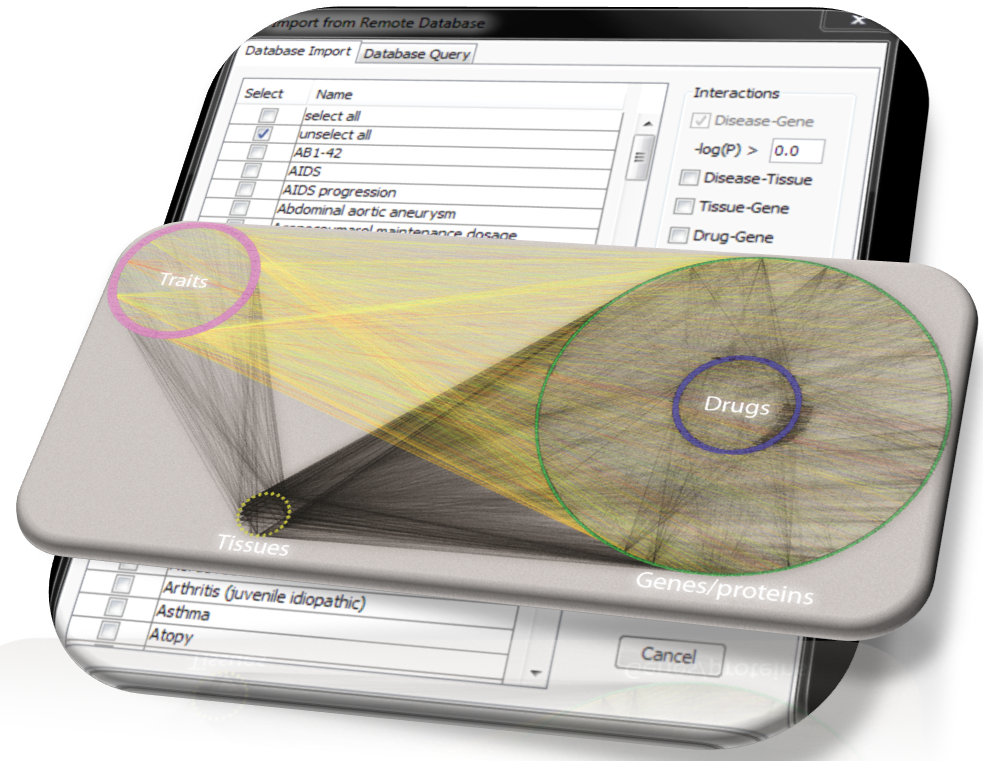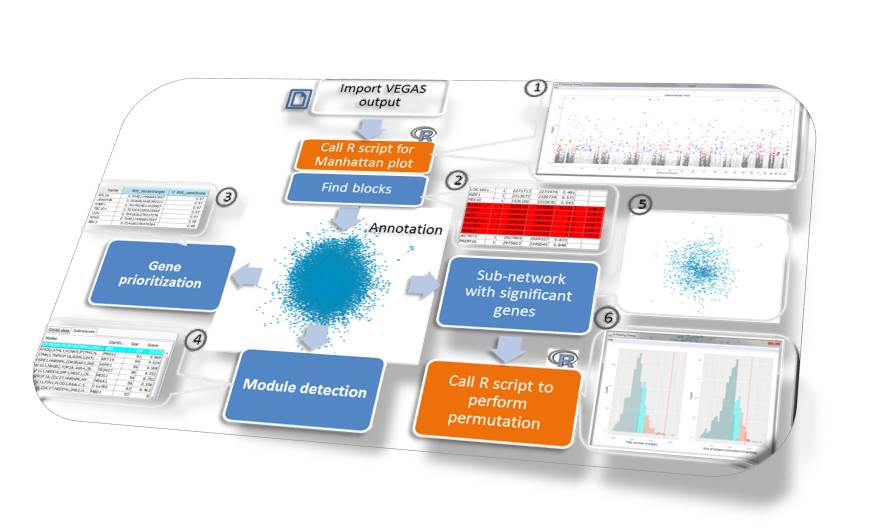Our lab develops bioinfomatics tools to facilitate our research. We are happy to share them and hope they will be of use to many people.
SPOKE
Under current development, SPOKE is a knowledge network built by merging more than 20 publically available databases. SPOKE includes diseases, genes, drugs, side effects, and more!
Domain Knowledge Score (DKS)
Implemented in R, the domain knowledge score (DKS) tool allows systematic and automated PubMed searches of any list of genes co-occurring with any set of query terms in specific sections of articles.

For example, a user can quickly test how many original articles (excluding reviews) contain each of the genes in a list (one by one) and the words “inflammation” and “cell cycle” in the title or abstract. This is useful when a list of genes of interest is obtained through genomic analysis and a biological interpretation is sought in the literature. DKS takes into account gene name aliases for human and mice, so that articles containing any alias of the gene symbol entered as input will be returned.
The output of DKS is a table with each of the genes in the initial list and the number of PubMed articles in which it is mentioned together with the terms in the query.
DKS tool was created by Pouya Khankhanian. For questions or comments contact [email protected].
Integrated Complex Trait Networks (iCTNet)
iCTNet is implemented in Java as a plug-in for Cytoscape 2.x (we are currently working on the 3.x version).
 The iCNet tool allows querying a database containing GWAS associations (from GWAS catalog), protein-protein and protein-DNA interactions (from HPRD), gene expression in different tissues (from Unigene) and drug-target interactions (from Drugbank).
The iCNet tool allows querying a database containing GWAS associations (from GWAS catalog), protein-protein and protein-DNA interactions (from HPRD), gene expression in different tissues (from Unigene) and drug-target interactions (from Drugbank).
A user can set filters to download data from specific diseases, at different levels of statistical confidence, and whether to download additional interactions or not. The selected data is then visualized as a multi-partite network in Cytoscape, where it can be manipulated taking advantage of other plugins and tools (layouts, coloring, analysis, etc) available in this environment.
Protein-Interaction-Network-Based Pathway Analysis (PINBPA)
 Cytoscape app, Protein-Interaction-Network-based Pathway Analysis (PINBPA) is a novel tool to analyze GWAS data in a network fashion. It’s the latest update to the originally proposed (2009) PINBPA for genome-wide association studies (GWAS).
Cytoscape app, Protein-Interaction-Network-based Pathway Analysis (PINBPA) is a novel tool to analyze GWAS data in a network fashion. It’s the latest update to the originally proposed (2009) PINBPA for genome-wide association studies (GWAS).
PINBPA has been implemented as Cytoscape app (3.0 and later versions) using Java. Additionally, R scripts are called via Rserve inside Cytoscape for plotting.
PINBPA offers six features:
- Generates a gene-wise Manhattan plot of the GWAS
- Sorts all genes by their genomic coordinates and defines association blocks at any user-defined threshold (p-value < 0.05 by default)
- Annotates the user-selected PPI network with imported gene-wise GWAS p-values
- Generates a sub-network of only significant genes (first-order networks) exceeding a user-defined threshold, and testing the statistical significance of the sub-networks using random permutations
- Runs network smoothing (an optional gene prioritization scheme) using a random walk with restart algorithm
- Detects sub-networks enriched in significant genes using either unweighted or weighted z-scores. The network z-score is adjusted using 1000 permutations and then a greedy algorithm is applied to search for the n optimal sub-networks.
The input data for PINBPA are gene-level summary statistics (p-values), as those generated by Versatile Gene-based Association Study (VEGAS).
Transcriptomic Knowledge-Graph Omics Integration for Human Pathway Analysis

A system for enriching biological concepts and integrating transcriptomic data with a human-specific heterogeneous biological knowledge graph from transcriptomics data. It enables advanced analyses, including pathway enrichment, network-based gene ranking, and functional annotation. Key features include personalized PageRank computation, visualization of network enrichment, and seamless integration with biological ontologies. The package is designed for users in genomics and computational biology to gain insights from large-scale transcriptomic data.
bolt4jr: Interface for the 'Neo4j Bolt' Protocol

Querying, extracting, and processing large-scale network data from Neo4j databases using the 'Neo4j Bolt' <https://neo4j.com/docs/bolt/current/bolt/> protocol. This interface supports efficient data retrieval, batch processing for large datasets, and seamless conversion of query results into R data frames, making it ideal for bioinformatics, computational biology, and other graph-based applications.